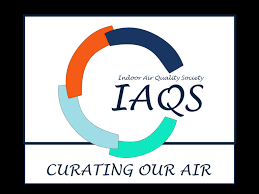Applications
Novaerus portable units are highly effective in any situation with an ongoing need to safely reduce pathogens, mitigate odours, and neutralise environmental contaminants in indoor air.


Operating Theatres
Reduce Risk of Surgical Site Infections
Surgical site infections (SSIs) are caused by bacteria that get in through incisions made during surgery. SSIs lead to more than 90,000 deaths each year, 50% of which are estimated to be preventable. One of the main sources of contamination is particles released into the air by operating room personnel. Small microorganisms and viruses “ride” on these particles and enter through open wounds or inhalation leading to disease and infection.
Elevated risk
- HEPA filtration is not installed in the HVAC system
- Ventilation is inadequate (<15 total ACH)
- HEPA filters are installed but not regularly replaced
- HVAC air vents are not regularly cleaned
- Reliance for infection control is on laminar air flow systems
- Patients are vulnerable to secondary infections, particularly from pulmonary, airborne pathogens
- Powerful odors are generated from medical procedures, cleaning chemicals, or patients
Novaerus
- Rapidly restores a safe operating environment
- Adsorbs odour from laser plumes and surgical smoke (Defend 1050)
- Augments HVAC systems without adequate airflow
- Easily moved by staff between operating theatres


Intensive Care Units
Reduce Risk of Cross Contamination
ICU and oncology patients are at heightened risk for healthcare-acquired infections due to the severity of their illness. ICU patients typically have a compromised immune system, long length of hospital stay, several caregivers performing multiple tasks, and a high quantity of invasive devices being used. All of these factors contribute to a greater potential for contact with biological or environmental contamination.
Elevated risk
- High number of invasive devices in use
- ICUs are occupied by multiple patients
- ICU patients are immuno-compromised
- Staff and visitor traffic is heavy
- Air flow is non-uniform in "dead zones" like entries, exits, and sink areas
Novaerus
- Rapidly and safely disinfects ICUs
- Eliminates dead zones in ICU layout
- Safe to use around vulnerable patients
- Easily moved by staff to point of care


Emergency & Waiting Rooms
Reduce Risk of Infection & Discomfort
Emergency rooms and waiting rooms are high-risk areas for infection due to the high volume of infectious and vulnerable patients who can be waiting for treatment in close proximity for several hours, often in confined and poorly ventilated spaces. Not only does this environment heighten the risk of infectious diseases being spread to healthcare personnel and other patients, but also increases the chances of acquiring new infections associated with treatment.
Elevated risk
- Close proximity of infectious patients
- Frequent exposure to outside air
- High traffic of untreated patients who may be carriers of viruses and disease
- Lower levels of HVAC ventilation
Novaerus
- Safe and effective for large, open, crowded spaces
- Balances air ventilation rate with particulate reduction and/or odour mitigation
- High air flow for large open spaces
- Five fan speeds allow noise-level adjustment


General Patient Wards
Reduce Risk of Outbreaks & Infection
The risk of contamination can be several times higher in multi-bed wards compared to single-bed rooms as bacteria originating from one patient can spread to others occupying the same space via air currents. Even with rigorous hand washing between patients, bacteria can be picked up and spread between patients by healthcare workers from multiple surfaces throughout the ward.
Elevated risk
- High patient-bed turnover
- High visitor and staff traffic
- Varying room size/layouts create dead zones of poorer air quality
- Multiple patients occupying same ward
Novaerus
- Eliminates dead zones in any ward layout
- Adsorbs and neutralizes odours
- Five fan speeds allow noise level adjustment
- Safe to use around vulnerable patients
- Easily moved by staff to specific points of care


Dental Offices
Reduce Risk of Cross-Contamination
Elevated risk
Novaerus


In Vitro Fertilisation Labs
Improve Embryonic Development
Even when IVF labs follow strict laboratory practices, airborne pathogens can negatively affect embryonic development. Indoor contaminants such as VOCs and microbes, and outside air pollution from road work, traffic, construction and insecticides can all lead to fluctuations in IVF success. Pollutants can settle on surfaces and dissolve into the aqueous solutions and oil overlays where fragile embryos are cultured.
Elevated risk
- Lab is located in urban environment
- Lab does not have VOC filtration
- Furniture, cleaning methods and clothing are not clean room approved
- Walls and surfaces are made from porous materials
- Ducts and pipes are exposed to dust
- Older labs are being renovated
Novaerus
- Rapid non-chemical air disinfection
- Renders airborne bacteria non-viable
- Augments HVAC filtration
- Eliminates VOCs
- Safe to use around staff


Senior Living Facilities
Reduce Risk of Infection & Outbreaks
The elderly are a vulnerable population and more susceptible to illness than younger adults. Pneumonia and lower respiratory tract infections remain the leading cause of mortality in nursing homes and airborne transmission is responsible for 20% of infections. Outbreaks in senior living facilities can not only be dangerous but also costly in staff absenteeism, overtime and closures.
Elevated risk
- Elderly are a vulnerable population
- Dust mites, pollen, bacteria and mould spores spread through cleaning activities
- Seasonal ailments such as influenza and allergies can cause outbreaks
- High visitor and staff traffic
Novaerus
- Prevents outbreaks by deactivating viruses at the DNA level
- Allows areas post-patient turnover to be occupied more quickly
- Reduces indoor allergens and bacteria
- Contains and eliminates pathogens in high traffic areas


Blood Banks
Reduce Risk of Outbreaks & Infection
Protect donors and staff from airborne transmission of viruses, bacteria and help keep the blood-bank environment clean and safe.
Elevated risk
Novaerus
SUBSCRIBE TO OUR NEWSLETTER
Get news and updates about Novaerus and indoor air quality.
Connect
Partners
